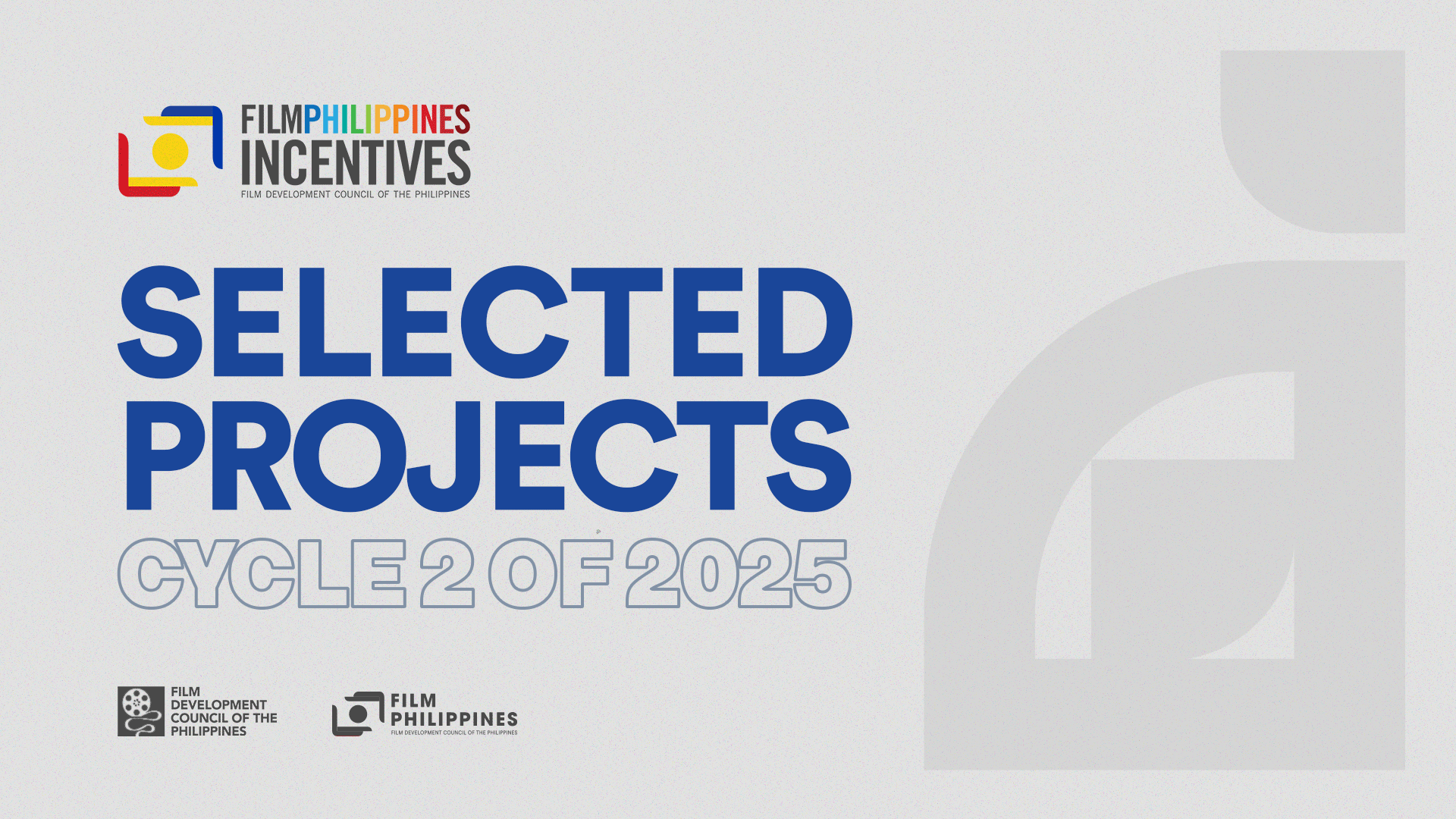Philippines makes successful debut in FOCUS London film market
It was a pleasant sight to have so many international film industry movers stop by the Philippines booth at the 2019 FOCUS film locations market held at the Business Design Centre London, United Kingdom. Producers, directors, and film workers took interest in the programs of the Film Development Council of the Philippines (FDCP), particularly the film incentive scheme called FilmPhilippines.
FOCUS is a global gathering of members of the creative screen industries. Film commissions, locations providers, and service companies from over 80 countries took part in the 2019 FOCUS, held from December 3 to 4, which had “Forces of Change – What’s next?” as the theme. The Philippines made its inaugural appearance in FOCUS as represented by FDCP in networking events, discussions, and meetings.
FDCP Chairperson and CEO Liza Diño at the Philippines booth in FOCUS London
FDCP Chairperson and CEO Liza Diño reacted with high hopes after manning the Philippines booth herself, which drew inquiries left and right. “2020 is going to be an exciting year for the Phililpine film industry because of FilmPhilippines, with new films being made, including animation, through international co-production, and creating new markets for production companies, post-production services, and the animation sector,” she said enthusiastically.
Diño manned the Philippines booth in FOCUS London together with FDCP staff Vivien Visaya. The two-woman FDCP team handled as much as 14 meetings in just five hours, even skipping lunch because of the non-stop questions. “But wow, I'll take this any day. This is our first time to participate here in FOCUS to promote the Philippines as a filming destination,” remarked Diño. “The energy just doesn't seem to end. Keep them coming. This is Philippines to the world.”
The FDCP team composed of Chair Diño and Vivien Visaya
On its first day in FOCUS London, the Philippines participated in 20 meetings, two networking events, and one panel session. The following day, the FDCP duo set up the FilmPhilippines Happy Hour to formally introduce FilmPhilippines to the guests. FilmPhilippines aims to promote film tourism by offering qualified international projects a 20% cash rebate on Philippine spending via the Film Location Incentive Program (FLIP) or a selective grant of up to PHP 10 million from the International Co-Production Fund (ICOF). The new incentive scheme is part of the “Let’s Create Together” campaign of FDCP and the Department of Tourism.
For both programs, the international project must be in a partnership with a registered Philippine company and the minimum spending requirement is PHP 8 million. For FLIP, the foreign project must have a local line producer and its output should be a full feature (live action, documentary, or animation), short film, television series, web content, or content for alternative distribution platforms. As for ICOF, a foreign full length feature project can avail of production, post-production, or animation services from duly-certified Philippine companies.
When the guests learned about the requirements for the new film incentives, their inquiries became more detailed. They became interested in the profile of Philippine production companies and were particular about the skill set of Filipino technical crew members. They also asked about the existing infrastructure in the Philippines. Diño reflected, “As we move towards this direction, we need to simultaneously work towards the upgrading of skills, elevating the skill set, and understanding international standards. FDCP is working on this and is currently securing technical assistance with international partners in coordination with the Department of Trade and Industry.”
Diño gladly shared that the FilmPhilippines Happy Hour even became a whole day affair because of the influx of questions from a total of 120 guests. Among the guests were representatives of three projects currently in pre-production. They were especially vocal about seriously considering the Philippines as their film location.
The FilmPhilippines Happy Hour was supposed to cover drinks only, but the FDCP Chair went the extra mile to buy fruits, crackers, olives, cheese, and chips. Also a professional chef, Diño did the plating as well as the serving of finger foods. She recounted, “Some people were having a hard time reaching for the food because it was crowded, so I immediately picked up the tray and served it around so the guests can have access to the food. They were so amused to see me offering olives, cheese, and crackers while Vivien was giving out flyers with information about our new incentives. For me, that's the Filipino hospitality. Walang puwedeng magutom!”
Just as in other official trips of the FDCP Chair, meetings were held on the sidelines to ensure that the ball keeps rolling for the Philippine film industry. Diño revealed that something is cooking between the British Film Institute (BFI) and FDCP, with the assistance of the Philippine Embassy in London.
“It's really amazing to meet like-minded people who see the value in collaboration and working together. That's how you get things done. You see, the film industry is all about creating and maintaining relationships. Thank you, BFI, for being open to all our proposed initiatives. We are excited for 2020,” she remarked about her meeting with BFI Director of International Affairs Neil Peplow.
FDCP Chair Diño with British Film Institute Director of International Affairs Neil Peplow
FDCP Chair Diño with Philippine Ambassador to the United Kingdom Antonio Lagdameo
She also paid a courtesy call to Philippine Ambassador to the United Kingdom Antonio Lagdameo, the father-in-law of acclaimed actress Dawn Zulueta and brother-in-law of award-winning cinematographer Marissa Floirendo. “Here's a man with such a rich experience in the arts and I was so pleased to share with him the success of our participation in FOCUS London, the fruitful meeting with BFI, and the possible support we can get to foster co-production between UK and the Philippines,” she related.
Diño also presented to Lagdameo the Philippine Embassies Assistance Program (PEAP) of FDCP that encourages Philippine Embassies and Consulates to hold Filipino film festivals in cooperation with FDCP and the Department of Foreign Affairs. From FOCUS London, to the BFI, and Philippine Embassy in London, the various initiatives of FDCP for the betterment of the Philippine film industry were promoted well and explained thoroughly.
‘Verdict’ by Raymund Ribay Gutierrez, the Philippine entry to the Academy Awards 2020, was Graded A by the Cinema Evaluation Board of the Film Development Council of the Philippines.
FDCP clarifies that it will no longer award amusement tax privileges to films graded after December 10, 2019. However, it will continue transacting with the concerned theater branches for the collection of amusement taxes for films graded before the date of the Resolution. FDCP assures that monetary incentives from amusement taxes will be awarded accordingly to producers who applied prior to the finality of the Decision.
While the decision was not what FDCP had hoped for, being the national agency for the development of the Philippine film industry, it respects the Supreme Court's decision and will abide by it. It has been holding consultations to determine the next steps in light of this development.
The CEB was established by FDCP under the Office of the President, in pursuant of RA 9167 of 2002, to evaluate and grade films submitted to FDCP for quality grading. The CEB is crucial to FDCP’s incentive and reward system that encourages Filipino producers to make quality films.
The dispute on FDCP’s collection of amusement taxes and awarding of incentives was rooted in civil cases filed before the Regional Trial Court (RTC), Branch 5, Cebu City way back in 2009 by the City of Cebu and SM Prime Holdings, Inc., as well as Colon Heritage Realty Corporation, the operator of the Oriente Group of Theaters in Cebu. The RTC Branch 5 in Cebu City declared Sections 13 and 14 as invalid and unconstitutional on September 25, 2012. This was affirmed by the Supreme Court on June 16, 2015, and echoed by the High Court’s final verdict on December 10, 2019.




